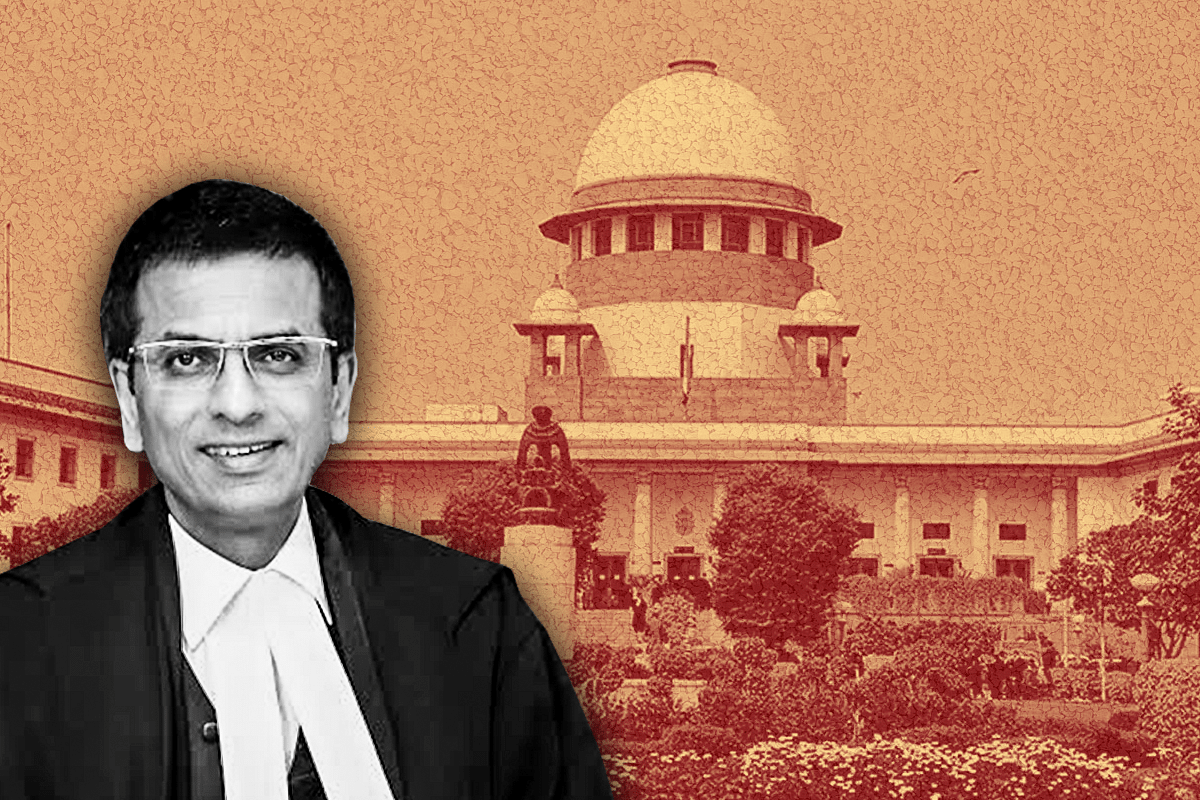News Brief
Plea To Restrain Justice Chandrachud From Taking Oath As Next CJI Dismissed By SC: Here’s What The Petition Argued
- Here's why the petitioner believes that Justice Chandrachud should be restrained from taking oath as the CJI.

Justice D Y Chandrachud.
Recently, a bench led by the Chief Justice of India (CJI) Uday Umesh Lalit, dismissed a plea filed for restraining Justice D Y Chandrachud from taking oath as the next CJI.
Without commenting on the merits of the petition before the Supreme Court and the representation before the President of India, listed below are the grounds which made the petitioner believe that Justice Chandrachud should be restrained from taking oath as the CJI.
(Before this petition, a representation was made before the President of India against the appointment of Justice Chandrachud as the CJI).
The petitioner stated that Justice Chandrachud, on more than 12 occasions, acted in disregard of the binding precedents of larger benches of the Supreme Court and thereby denied justice to the deserving litigants.
The major accusation against Justice Chandrachud is that he heard a case relating to his son’s client and passed an unusual ex-parte order without issuing notice to the opposite party.
It was contended that Abhinav Chandrachud, a practising lawyer in the Bombay High Court and Supreme Court and the son of Justice Chandrachud, appeared for Sheetal Tejwani in a Criminal Writ Petition for quashing FIR No. 806/2019.
Another person Sagar Suryawanshi (husband of Sheetal Tejwani), and a regular client of Abhinav Chandrachud was also an accused in the same FIR.
Subsequently, an intervention application was also filed by Sagar Suryawanshi through Anita Chavan, which was rejected by the Bombay High Court.
Thereafter, in respect of the same matter, Anita Chavan approached the Supreme Court in SLP (Crl) No. 9131 of 2021. Now, this matter came up before the bench of Justice Chandrachud.
And the bench, without issuing notice to the state or other parties, passed an order directing the Bombay High Court to expeditiously dispose of the case of Anita Chavan.
The contention raised in the petition as well as the representation before the President of India against Justice Chandrachud is that — as the matter was directly connected to Justice Chandrachud’s son’s client, he should have recused himself from hearing the matter.
Justice Chandrachud not only heard the matter, but in an unusual scheme of things, passed an ex-parte order without issuing notice to the opposite parties.
While the petition has been dismissed by the Supreme Court, the argument raised in the petition is based on the principle that ‘justice must not only be done, but must also be seen to be done’.
As the matter was related to a multi-crore bank fraud, essentially the contention was that even if the case was indirectly connected with Justice Chandrachud, he should have recused himself.
Introducing ElectionsHQ + 50 Ground Reports Project
The 2024 elections might seem easy to guess, but there are some important questions that shouldn't be missed.
Do freebies still sway voters? Do people prioritise infrastructure when voting? How will Punjab vote?
The answers to these questions provide great insights into where we, as a country, are headed in the years to come.
Swarajya is starting a project with an aim to do 50 solid ground stories and a smart commentary service on WhatsApp, a one-of-a-kind. We'd love your support during this election season.
Click below to contribute.
Latest